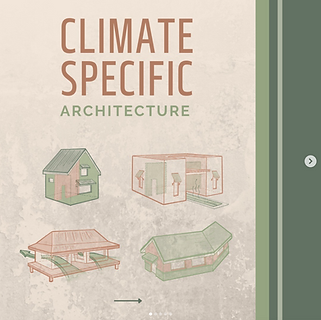
C.RANSBURY
DESIGN
MEET CHRISTINA
As an custom home designer, I prioritize low-carbon building methods that not only endure the test of time, but also honor our planet's health.
For the better part of my twenties, I immersed myself in managing a 10-acre off-grid property nestled on the east side of Maui. It was more than a homestead; it was a dream manifested—a sanctuary brimming with orchards, gardens, and community, embraced by majestic mountain and ocean vistas.
I poured my heart and soul into this land, driven by a passion for sustainability that transcended mere custom home design.
Over nearly 8 years, I orchestrated the property's harmony, delving into the intricacies of building, permaculture, and community dynamics. Through this journey, I discovered the profound synergy between resilient practices and community values—sustainability, self-improvement, and communal living intertwining to create a thriving environment.
It was more than a job. It was a personal devotion—and the training ground that would lay the foundations for a fulfilling, lifelong mission.

Qualifications


During my time in Hawai’i, I worked on a bamboo farm, and worked with architects and builders of prefabricated bamboo homes. Later, I studied bamboo techniques in Bali. I’ve witnessed firsthand the way bamboo can create structures that blend with nature’s forms, while minimizing environmental impact.
When I moved to a new climate—the high desert of Colorado—I embraced a new bio-friendly material, compressed earth blocks.
Compressed earth blocks are made from inorganic subsoil, non-expansive clay, and other aggregates. They utilize local materials to create buildings that are truly part of the land they arise from. In the high desert region, fire is a danger. Building with earth offers us a natural, fire-resistant solution. Thus, the land itself offers protection from a regional threat.
Every design must harmonize with its environment . . . while minimizing its ecological footprint.
LIVING FUTURE ACCREDITED
International Living Future
Institute, 2024
BUILD OUTSIDE THE BOX
Course Graduate, 2023
YESTERMORROW
DESIGN & BUILD SCHOOL
Green Building Detail Course Graduate, 2023
ECOBLOX
COLORADO EARTH
Colorado, 2022
PASSIVE HOUSE TRAINING
Course Graduate, 2022
RESTORATION SCIENCE & ENGINEERING
Alaska, 2021
NATURAL BUILDING ALLIANCE
Utah, 2021 / Boulder, 2023
ECO NEST HOMES
Oregon, 2021
BAMBOO LIVING TECHNOLOGIES
Hawai’i 2019
IBUKU ARCHITECTS
Bali, 2017
WHISPERING WINDS BAMBOO
Hawai’i, 2015
HAWAI’IAN SUSTAINABILITY FOUNDATION
Hawai’ i, 2014
NATURAL LIVING SCHOOL
California, 2013
EARTHSHIP BIOTECTURE
New York, 2011
FASHION INSTITUTE
OF TECHNOLOGY
A.S. Interior Design
New York, 2010 -2012
HABITAT FOR HUMANITY
West Virginia, 2009


That mission is to share the beauty and simplicity of carbon-smart, resilient design with the world.
Whether through my design services, consultations, or courses, I aspire to empower others to create homes that feel like paradise—spaces that breathe life, beauty, and legacy.
To that end, I specialize in working with climate-specific natural materials, such as hempcrete, strawbale, adobe, rammed earth, aircrete, and more. Each climate and environment inspires a unique approach.
An energetic connection arises between us and the land we live on. It influences the structures we create, and how connected we feel to nature. It comes as no surprise that while I was in a tropical climate, I became an expert in building with bamboo.
My designs also incorporate key principles of resiliency, such as:
-
Passive Solar Design Orienting a building well can maximize solar gain, reducing our reliance on additional heating sources.
-
Embodied Carbon: Carbon sequestering natural materials can help minimize our impact on the environment.
-
Waste Minimization: With creativity and patience, we can repurpose old materials, and find natural ways to manage waste.
-
Mixed-use Zoning: Our communities can feel connected rather than isolated. We can also strive to incorporate agriculture into our communities.
-
Affordability: Finding the sweet spot of how much square feet we actually need to live is a respectful and wise use of our resources.
-
Feng Shui & Vaastu: It’s not enough to have a sustainable structure—our buildings should also nurture us emotionally, energetically, and spiritually.
I invite you to join me. Let's embark on a journey to redefine what it means to inhabit this planet—a journey where sustainability, beauty, and human flourishing converge.
There is indeed much good work to be done.
















